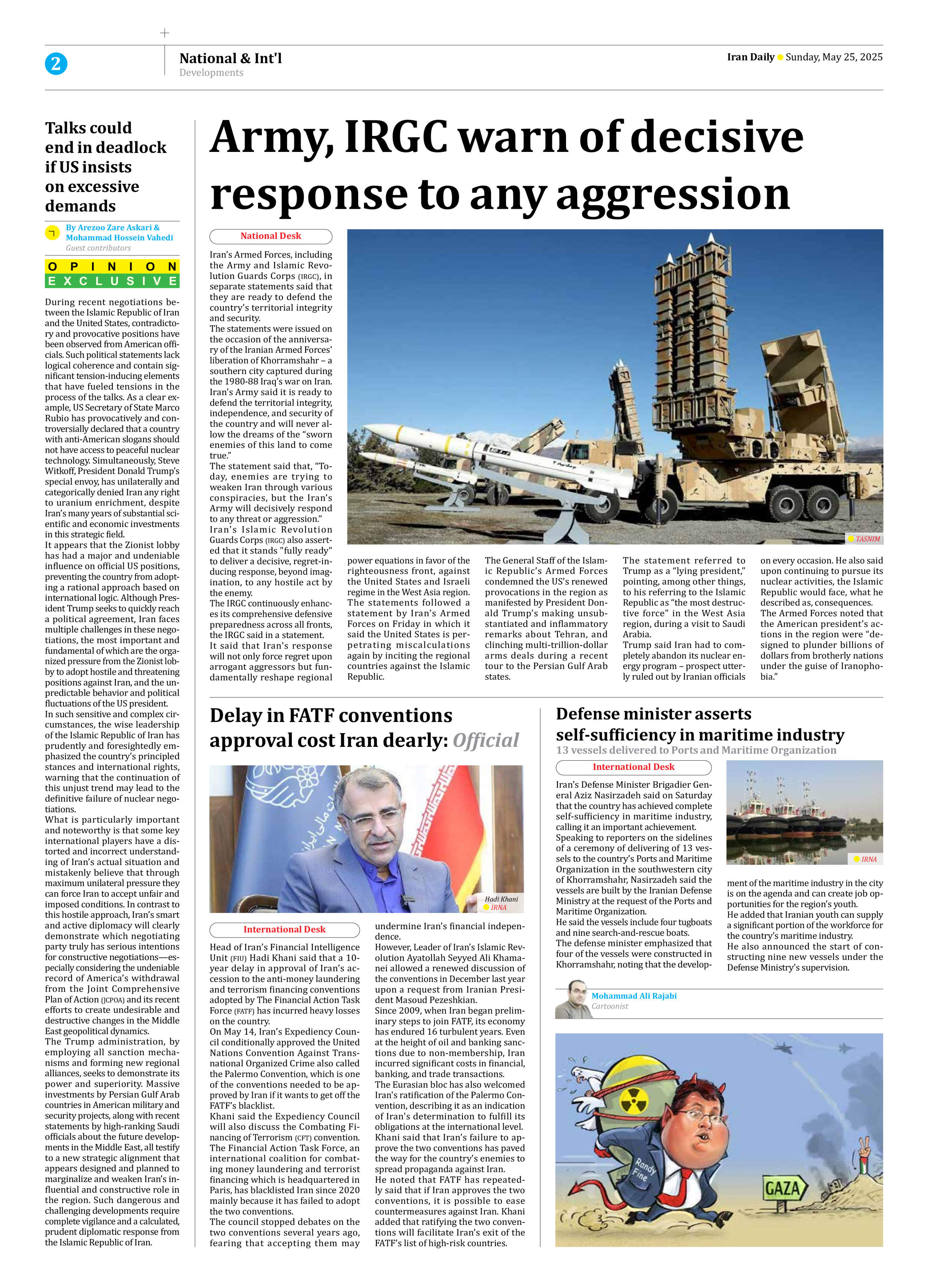
Talks could end in deadlock if US insists on excessive demands
By Arezoo Zare Askari & Mohammad Hossein Vahedi
Guest contributors
During recent negotiations between the Islamic Republic of Iran and the United States, contradictory and provocative positions have been observed from American officials. Such political statements lack logical coherence and contain significant tension-inducing elements that have fueled tensions in the process of the talks. As a clear example, US Secretary of State Marco Rubio has provocatively and controversially declared that a country with anti-American slogans should not have access to peaceful nuclear technology. Simultaneously, Steve Witkoff, President Donald Trump’s special envoy, has unilaterally and categorically denied Iran any right to uranium enrichment, despite Iran’s many years of substantial scientific and economic investments in this strategic field.
It appears that the Zionist lobby has had a major and undeniable influence on official US positions, preventing the country from adopting a rational approach based on international logic. Although President Trump seeks to quickly reach a political agreement, Iran faces multiple challenges in these negotiations, the most important and fundamental of which are the organized pressure from the Zionist lobby to adopt hostile and threatening positions against Iran, and the unpredictable behavior and political fluctuations of the US president.
In such sensitive and complex circumstances, the wise leadership of the Islamic Republic of Iran has prudently and foresightedly emphasized the country’s principled stances and international rights, warning that the continuation of this unjust trend may lead to the definitive failure of nuclear negotiations.
What is particularly important and noteworthy is that some key international players have a distorted and incorrect understanding of Iran’s actual situation and mistakenly believe that through maximum unilateral pressure they can force Iran to accept unfair and imposed conditions. In contrast to this hostile approach, Iran’s smart and active diplomacy will clearly demonstrate which negotiating party truly has serious intentions for constructive negotiations—especially considering the undeniable record of America’s withdrawal from the Joint Comprehensive Plan of Action (JCPOA) and its recent efforts to create undesirable and destructive changes in the Middle East geopolitical dynamics.
The Trump administration, by employing all sanction mechanisms and forming new regional alliances, seeks to demonstrate its power and superiority. Massive investments by Persian Gulf Arab countries in American military and security projects, along with recent statements by high-ranking Saudi officials about the future developments in the Middle East, all testify to a new strategic alignment that appears designed and planned to marginalize and weaken Iran’s influential and constructive role in the region. Such dangerous and challenging developments require complete vigilance and a calculated, prudent diplomatic response from the Islamic Republic of Iran.







